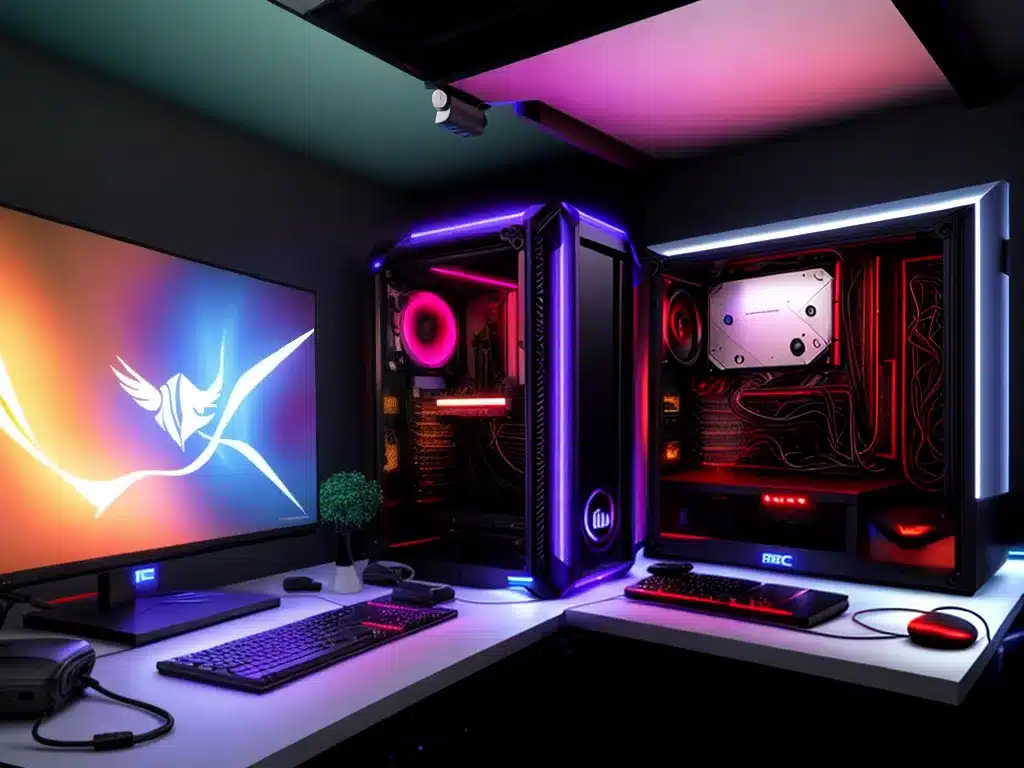
Introduction
Backing up your gaming PC is incredibly important to avoid losing your game saves, settings, and installed games if your system fails or needs to be reformatted. However, with modern high-capacity hard drives and tons of installed games, performing the right type of backup can get complicated. In this guide, I will walk through the key considerations for properly backing up your gaming PC and recommend the optimal backup solutions for different use cases.
Determine Your Primary Backup Goals
Before deciding on a backup strategy, first determine your key backup goals:
Preserve Game Saves and Settings
This is often the most critical data to backup. Losing hundreds of hours of progress in your favorite games is devastating. Prioritize preserving game save files and configuration/settings files for your games.
Recover Installed Games
Re-downloading and re-installing all of your games can take days or weeks. Backing up installed games can let you restore your full game library quickly.
Restore the Entire System
In a worst-case scenario like drive failure or ransomware, being able to fully restore your entire system via backup saves you from a total re-installation.
Choose the Right Backup Locations
Where you backup your data is also vitally important:
- Local external drive: Provides fast backups and restores, but won’t protect against theft, fire, flood, or other local disasters.
- Remote cloud backup: Protection against local disasters, but slower to backup and restore.
- Redundant local and cloud backup: Provides both fast local backup as well as protection against local disasters. Recommended for important, irreplaceable data.
I recommend using both a local external drive as well as a cloud backup service for optimal protection of your gaming PC.
Game Save Backups
Your game save files contain all of your progress and achievements in your games. Losing these can mean losing hundreds of hours of gameplay. Here are tips for properly backing up game save data:
Identify Game Save Locations
Game save files are usually stored in standard locations:
%USERPROFILE%/Saved Gamesfolder for Windows games/Users/<username>/Library/Application Supportfolder for macOS games
However, some games may use custom save file locations. Identify where all of your installed games keep save files.
Back Up Game Save Folders
Use your backup software to backup identified game save folders to your local external drive and cloud backup. Configure incremental backups to capture new saves.
Back Up Individual Save Files
For important save files, occasionally do manual backups of individual save files to safeguard key game progresses. This provides an additional layer of protection against game save corruption.
Game Installation Backups
Re-downloading and re-installing all of your game files, updates, and DLCs can take days. Here are tips for backing up your installed game folders:
Identify Installed Game Library Folders
The main game installation folder locations are:
C:\Program Files\andC:\Program Files (x86)\for Windows/Applications/and~/Applications/for macOS
Locate all of your game installation directories under these folders.
Backup Game Install Folders
Use backup software to backup your entire game installation folders to external and cloud storage. This preserves all game files, updates, and DLC.
Warning: This takes up significant storage space. You may choose to only backup installations of your actively played games.
Steam Game Backup
For Steam games, use Steam’s built-in backup feature. This can automatically backup all games to external media.
Full System Imaging
For maximum protection against disaster scenarios like drive failures, I recommend periodically performing full system image backups:
Create System Images
Use imaging software like Macrium Reflect or Apple Time Machine to create full system images to external hard drives on a monthly basis. This lets you restore your entire system.
Store Offsite
I recommend keeping the latest system image backup offsite at a friend/family’s house or safety deposit box. This protects against both disk failure as well as local disasters like fires.
Test Restores
Verify your backup images by periodically doing test restores to a spare hard drive. This ensures your images are valid and lets you confirm you can successfully restore your system.
Automate Backups
Manually running backups is time consuming and easy to forget. Here are tips for automation:
Schedule Backups
Use the scheduling features in backup software to automate daily or weekly game save and game install backups to local and cloud destinations.
Boot Time Backups
Schedule system image backups to run automatically at boot time on a monthly basis. This ensures they run without intervention.
Test Automatically
Configure scheduled test restore jobs to validate your backup images, such as quarterly. This routinely confirms your backups are working properly.
Final Thoughts
Following proper gaming PC backup strategies is crucial to avoid losing your game progress and investments of time and money in your digital game libraries and system. By using both local and cloud backup solutions, automating redundant backups, and periodically testing restorations, you can effectively safeguard your gaming PC against data loss or hardware disasters.












